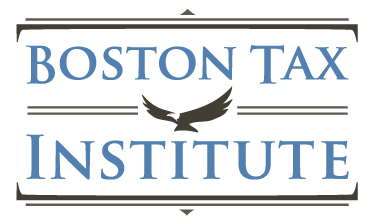Image: Freepik
Guest post by Rita Harris – socialworklife.org
————————————————————————————————————————————————————————–
You don’t need a six-figure salary to feel in control of your life. What you need is a new conversation with money. If you’ve been raised to brace for the worst or expect to scrape by, your brain wires itself to stay there. Struggling financially isn’t always about the numbers, it’s often about the stories you keep repeating. The good news is, these stories can change. And when they do, your actions start changing with them.
Rewrite Your Financial Story
First, let’s kill the myth that your bank account defines your future. It doesn’t. But if you’ve always equated a low balance with failure, you’re not going to make brave or bold choices. You’ve got to shift your thinking about money, and that starts with language. Stop saying “I’m broke” and start saying “I’m rebuilding.” This one change reframes your situation from identity to circumstance. Once that happens, you can finally begin to write a better narrative.
Pay Yourself First
Here’s the thing: You’re not greedy for putting yourself first. You’re wise. Most people think bills come first, and if there’s anything left, that’s yours. But what if you flipped that script? Try building your budget around you—start with yourself, not the bills—and let the rest follow. It feels like rebellion, but it’s just prioritizing your future over everyone else’s past due notice.
Tax Literacy Is a Hidden Wealth Tool
No one grows up dreaming about W-4s or itemized deductions, but here we are. And if you’re not paying attention, tax season becomes a punishment, not a strategy. You don’t have to become an accountant, but learning how taxes affect your income can change how you plan for the year, not just react to it. Look at your withholdings. Ask questions. Better yet, start seeing your tax habits as part of your overall financial wellness, not some dry paperwork you rush through in April.
Back to School, Forward in Life
When money feels tight, education can feel like a luxury. But it might be the best lever you’ve got. Whether you’re a nurse looking to earn your BSN or hoping to bump your resume with an MBA, there are more programs than ever. And with online degrees, you can keep your job, keep parenting, keep breathing. If you’re looking to boost your earning potential, check out this option, which makes it easier to work toward a better-paying future without disrupting your life.
Automate to Accumulate
Let’s be honest, remembering to save is a full-time job on its own. You tell yourself you’ll move some money next week, but then the car needs brakes or your kid outgrows their shoes. That’s why automation isn’t a techy finance trick, it’s survival. When you set your savings on autopilot, you don’t have to be perfect—you just have to set it up once. Even tiny amounts, skimmed quietly in the background, add up faster than good intentions. Automation takes the pressure off and lets your habits do the heavy lifting.
Track Without Shame
People avoid budgeting because it feels like a punishment. Like you’re confessing your sins one Starbucks at a time. But what if you tracked your spending like a scientist, not a judge? The point isn’t to blame yourself, it’s to get real about your spending habits. That data tells a story, and once you see the patterns, you can shift them. Awareness, not guilt, is how change starts.
Detach Self-Worth from Net Worth
This one’s emotional. If you grew up poor, money wasn’t just money, it was proof. Proof you were okay. Proof you mattered. But you’ve got to separate your value from your bank balance if you want a peaceful relationship with money. Otherwise, every dip in your finances will feel like a moral failing. There’s a lot of power in choosing not to measure your worth in dollars and cents—it’s a boundary that protects your self-esteem from your circumstances.
Your money mindset won’t change overnight, but it will shift if you’re honest with yourself. Rewrite the script. Make space for new habits. Let your decisions reflect where you want to go, not just where you’ve been. You don’t have to be rich to think like someone who values themselves. And once you start thinking that way, the rest of your life catches up.
—————————————————————————————————————————————————————————-
Discover insightful tax journalism and practical advice at Your Tax Matters Partner, where complex tax laws meet real-world issues like religious liberty and gender equity.
Stay informed about the ever-changing world of taxes with Your Tax Matters Partner and gain the insights you need to make smart financial decisions.
For great value continuing professional education. I recommend the Boston Tax Institute

You can register on-line or reach them by phone (561) 268-2269 or email vc@bostontaxinstitute.com. Mention Your Tax Matters Partner if you contact them.
Originally published on Forbes.com.
For articles oriented toward tax professionals check out Think Outside The Tax Box.
My new book Reilly’s Laws of Tax Planning is now available from TOTB.
































































































